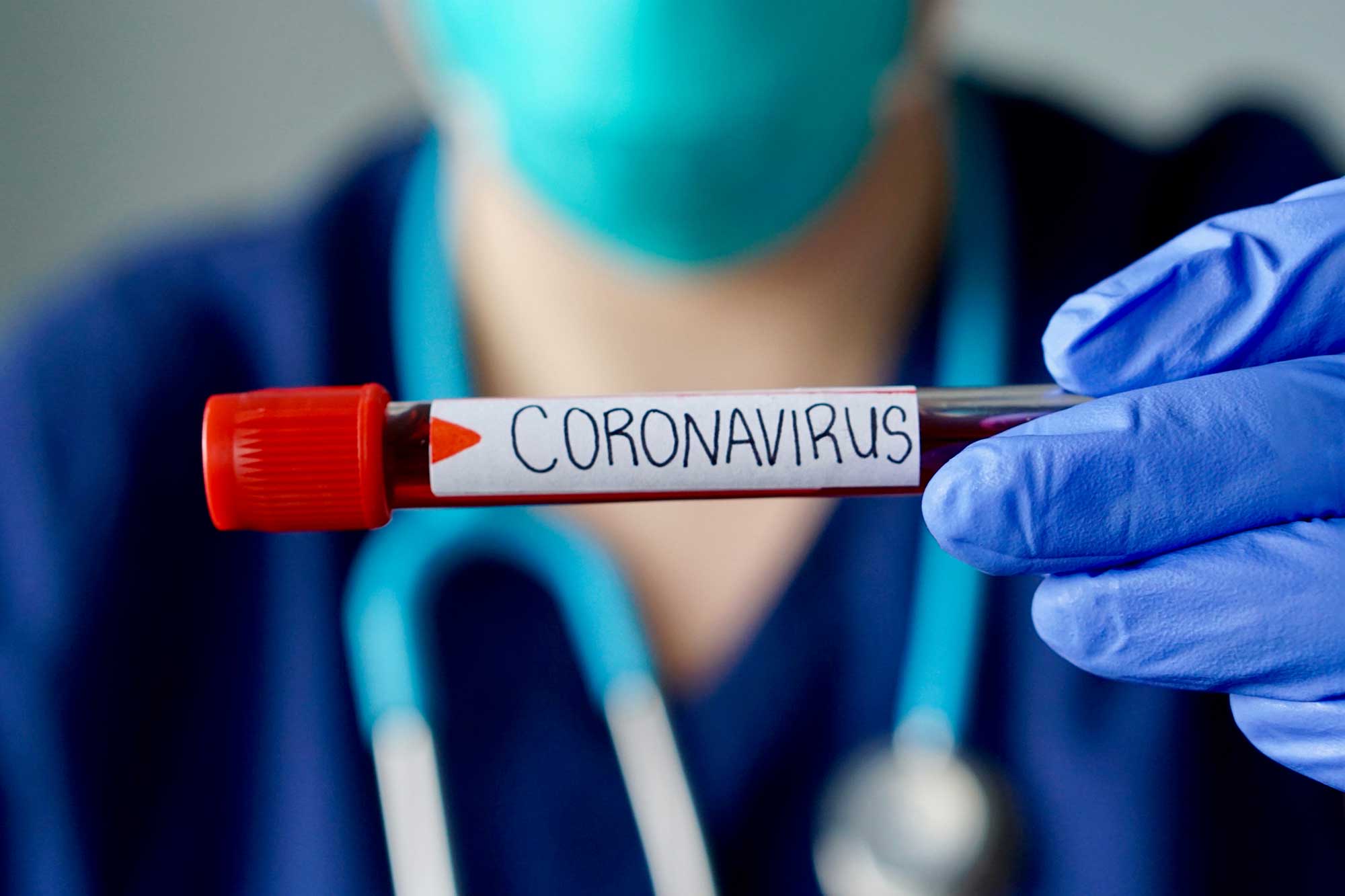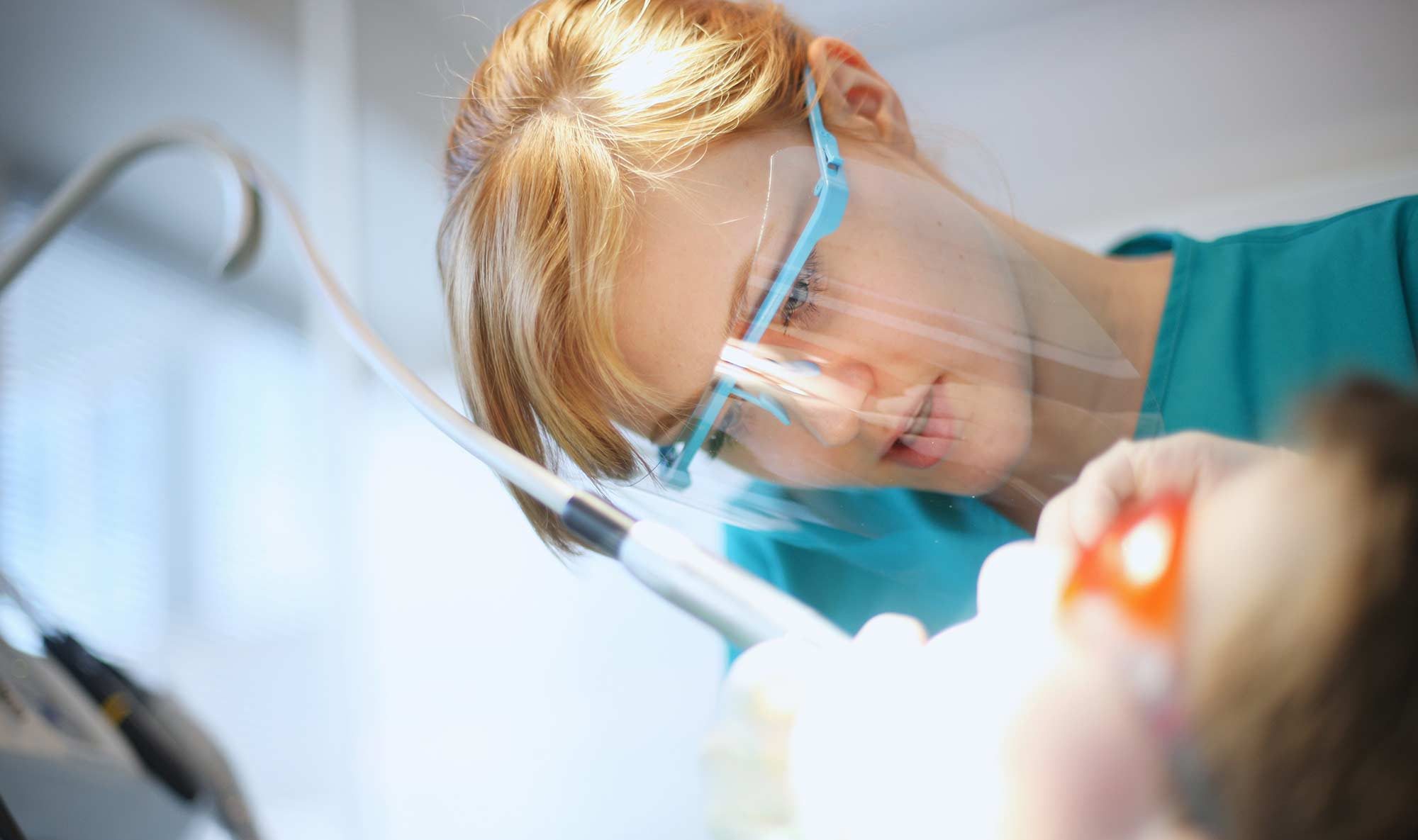 As the world of dentistry continues to navigate the storm of the COVID-19 pandemic, some of our dental care colleagues have found themselves in roles they never expected.
As the world of dentistry continues to navigate the storm of the COVID-19 pandemic, some of our dental care colleagues have found themselves in roles they never expected.
A senior dental officer (SDO), a community dental officer (CDO), a redeployed foundation dentist (FD) and an oral surgery clinical lecturer (CL) talk to Dentistry Online about their experiences on the acute dental care frontline.
How have you ended up working in the role you are in now?
CL: I’m in the same role as I was before, a clinical lecturer in oral surgery with honorary NHS post. The only difference is there’s reduced clinical activity as there are no students – both undergraduate and postgraduate.
FD: As a foundation dentist in London working in both general practice and at King’s College dental hospital, I volunteered via the deanery. I distinctly remember the call: ‘Northwick Park hospital are desperate for help in the fight against COVID-19; can you start tomorrow?’
SDO/CDO: We are in our original positions by nature of our employment.
What is your new position?
FD: I’m on the ‘proning team’ – this is basically turning patients onto their front or onto their back to aid oxygenation. We are a team of seven with an anaesthetist. Our role is to maintain the ventilation tube and airway in these very poorly patients. We have to disconnect and then reconnect all of their lines – patients have multiple lines and some are on dialysis too. It’s a big change from dental practice for sure.
CL: I cover one day per week alternating each week between hot and cold clinics for emergency oral surgery care.
COVID-19 ‘hot clinics’ have been outlined by NHS England as a clinic designated to treat acute dental problems in confirmed COVID positive patients or suspected COVID positive patients. ‘Cold’ clinics cope with emergency dental care for non-COVID patients. As we know, criteria for patients to be seen is still extremely strict to encourage the ‘stay at home’ advice for all patients.
SDO: All routine community dental services have stopped so I am mainly triaging and advising patients by phone. I am also involved in treating some patients and as well as the management side of the emergency dental service.
CDO: I am responsible for telephone triaging of dental emergencies, and work on a rota to see patients in our clinic. I also carry out emergency domiciliary visits.
How are you finding the work?
CL: We have had an extremely low patient flow.
SDO: Very different. There is a lot more paperwork like policies, referral pathways, emergency dental care updates – but not much actual dentistry.
CDO: I am finding telephone triaging very challenging. I feel this is not a role that comes naturally to clinicians. It is sometimes difficult to extract concise and accurate information from patients, parents and carers. I am also finding it difficult to overcome the idea of remote prescribing of antibiotics without seeing the patient first – a practice that is discouraged in normal circumstances. However, these are unprecedented times. Also nine times out of ten the treatment plan is usually extraction. Again, this is different from pre-COVID times.
FD: I definitely go through waves. Initially ITU felt so strange. It was nothing I was used to and the whole hospital environment was just really surreal. I normalised my role surprisingly quickly but now as we’ve got to know some patients (some have been there for 25 days+) it becomes difficult to maintain emotional distance. Although we cannot save everyone, there is a sense the vital role we are fulfilling brings its own reward.
Socially, I am one of the lucky ones. I feel grateful to be going to work and sharing experiences, laughs and tears in real life.
Also, from a selfish point of view, I have gained experience in caring for critically ill patients, learned aspects of medical care and assisted in emergency procedures I never thought I would.

Have you faced any challenges so far?
FD: It’s emotional witnessing sights we are just not used to in dentistry. The most heart wrenching has been hearing patient video calls with family some moments before patients pass away. However it’s also physical – adjusting to night shifts is hard. I have a really positive team. Yet I will be very grateful for the 9-5 of the dental practice when we return.
SDO: My husband is considered vulnerable in terms of COVID-19 so he has temporarily moved with our two children (aged three and one) to his parent’s house (three hours away!)
CL: The biggest challenge so far has been the changes in personal protective equipment (PPE).
CDO: Wearing full PPE to treat patients with the air conditioning switched off (to prevent aerosols circulating) in the emergency clinic is very challenging due to the heat. This will be extremely challenging as we head into the summer. It’s also challenging keeping up with the rapid changes in advice around COVID-19 precautions.
How have your family and friends reacted?
SDO: They were surprised that dentistry was considered so frontline and high risk that I had to separate from my family and return to work.
CL: Understandably some are concerned with the risk of exposure to COVID-19.
FD: My parents were initially really worried. They are back home in Liverpool and concerned about me living alone in London so hearing I was to start in ITU, they just wanted to keep me safe.
But of course, they understand me volunteering and are beaming with pride. My friends who are non-FDs are so worried and think I’m crazy for volunteering.
They also want to know what it’s like and are all so proud and supportive.
CDO: My husband and children aren’t too concerned. Our eldest daughter has returned from university and as her boyfriend’s father has a serious heart condition, he has moved in with our family to prevent any risk of transmission of the virus to his father. Our family has grown!
Have you learned anything that you will take back to practice when it starts up again?
FD: The obvious answer is PPE, cross infection and how to stay safe. Most applicable, though, is that my experience means I will have an emotional, sensitive and accurate insight if patients discuss their hardships during this time.
Having worked behind the PPE we need to wear, I will never underestimate the importance of communication with patients. Some patients will have really suffered during this time of absence – both their dental health and emotionally. They are going to rely on us to help them feel better.
SDO: Through the emergency dental centre I have met a lot of dental colleagues who I previously only knew as a name on a referral form. Indirectly, this will help patient care as it is easier to discuss patient treatment plans when you have a good working relationship
CDO: The experience has demonstrated to me that we in dentistry are fortunate to have knowledge and training of the highest standards in decontamination, infection prevention and control which we can carry forward.
I have also learned more about how digital technology can support communication and learning in dentistry, which can be developed in the future.
Do you have any advice for dentists wanting to help?
CL: That’s difficult. My only advice would be to prepare for changes to the working environment once social distancing measures are reduced.
SDO: There are so many ways to help in this pandemic, even if it’s not clinical and in small ways. My neighbour is involved in the local food bank, so I regularly leave food over to her. This smaller gesture probably has the greatest effect.
CDO: Get involved in whatever tiny way you can but be sensible and alert.
FD: Mainly to continue supporting and following up your patients. In the dental hospital, there were some patients in severe pain. They were also worried about unfamiliar oral lesions and said they simply couldn’t reach their dentist. If it is a concern, ensure they don’t get lost in the system. If it’s not concerning, don’t underestimate the power of reassurance over the phone.
For those dental professionals who have friends or family carrying out essential work, keep supporting them – it’s heart-lifting.
Follow Dentistry Online on Instagram to keep up with all the latest dental news and trends.


